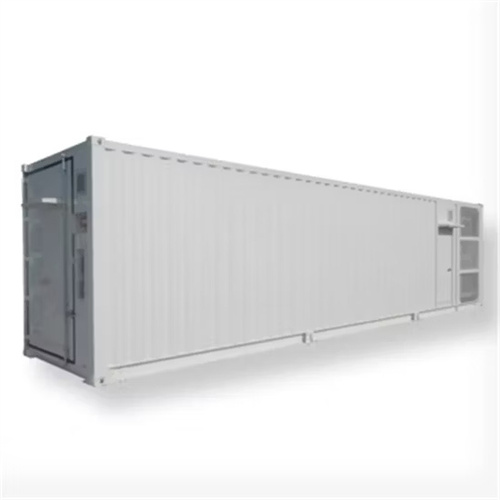Solar lithium iron phosphate energy storage
As the photovoltaic (PV) industry continues to evolve, advancements in Solar lithium iron phosphate energy storage have become critical to optimizing the utilization of renewable energy sources. From innovative battery technologies to intelligent energy management systems, these solutions are transforming the way we store and distribute solar-generated electricity.
6 FAQs about [Solar lithium iron phosphate energy storage]
Are lithium iron phosphate batteries the future of solar energy storage?
Let’s explore the many reasons that lithium iron phosphate batteries are the future of solar energy storage. Battery Life. Lithium iron phosphate batteries have a lifecycle two to four times longer than lithium-ion. This is in part because the lithium iron phosphate option is more stable at high temperatures, so they are resilient to over charging.
Are lithium ion batteries the new energy storage solution?
Lithium ion batteries have become a go-to option in on-grid solar power backup systems, and it’s easy to understand why. However, as technology has advanced, a new winner in the race for energy storage solutions has emerged: lithium iron phosphate batteries (LiFePO4).
Are lithium iron phosphate backup batteries better than lithium ion batteries?
When needed, they can also discharge at a higher rate than lithium-ion batteries. This means that when the power goes down in a grid-tied solar setup and multiple appliances come online all at once, lithium iron phosphate backup batteries will handle the load without complications.
Why should you use lithium iron phosphate batteries?
Additionally, lithium iron phosphate batteries can be stored for longer periods of time without degrading. The longer life cycle helps in solar power setups in particular, where installation is costly and replacing batteries disrupts the entire electrical system of the building.
Are lithium phosphate batteries good for the environment?
The longer lifespan of lithium iron phosphate batteries naturally makes them better for the earth. Manufacturing new batteries takes energy and resources, so the longer they last, the lower the overall carbon footprint becomes. Additionally, the metal oxides in lithium-ion batteries have the dangerous potential to leach out into the environment.
How long do lithium phosphate batteries last?
Battery Life. Lithium iron phosphate batteries have a lifecycle two to four times longer than lithium-ion. This is in part because the lithium iron phosphate option is more stable at high temperatures, so they are resilient to over charging. Additionally, lithium iron phosphate batteries can be stored for longer periods of time without degrading.

